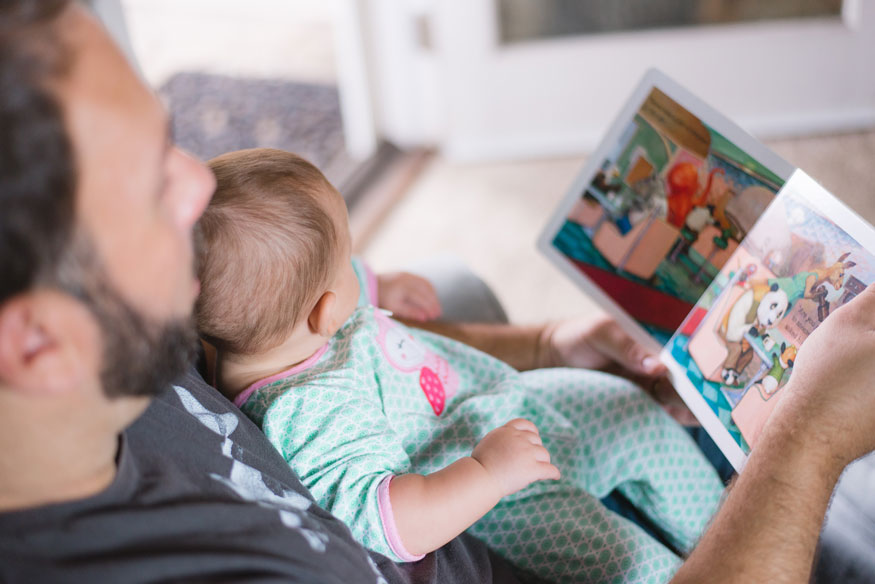There are a lot of questions when parents, couples, and single members in our communities start considering how to make an impact in children’s lives – especially when they start looking at foster care and adoption options. You’ll do your online digging, and you’ll have a picture in your mind on how it will go, but when it comes down to it, there are still questions to be answered. Luckily, the Black Hills offers an array of services to those considering being involved with foster care or adoption. From assessments and trainings to making connections for support, there’s a little place for everyone when it comes to helping children in need.
START HERE
It’s a winding path to making a parenting plan for the future, and finding what’s best for your family and schedules. Start by talking to a professional.
“Attending an information session will help parents learn a little bit more about the programs available,” said Andi Hemeyer, Family Services Supervisor at the Department of Social Services. “If being a foster parent or an adoptive parent isn’t the right fit for you right now, there are other opportunities to get connected. Supporting our communities’ current foster and adoptive parents – providing wraparound support and encouragement to them – is a great way to support the children in our community.”
NEXT UP
Once you decide your route, choose your path.
Foster/Adoptive Parent: Once deciding Foster Care/Adoption is the path right for you, you will need to find an agency that fits your family and apply – beginning the paperwork and background check process.
TIPS: Be sure to have access to mounds of information. This will include things like address of living for the past years, financial history, employment history, schedules and more.
READY FOR CLASS?
Foster Care & Adoption: After you begin your paperwork, you’ll start your 30 hours of required training. This training will go through the ins and outs of trauma, how it affects children, and how to handle situations in a healthy and productive way. NOTE: Training doesn’t end once your 30-hours is up! Many facilities will have supportive assistance for you every step of the way.
HOME SWEET HOME
Foster Care & Adoption: Whether you are walking down the path of foster care or adoption, you will need to participate in a home study.
“So many people think that we will come in with a white glove,” said Vanessa Mader, the Assistant Branch Director at Bethany Christian Services. “But that’s not it at all. A home study doesn’t mean your home needs to be perfect. We simply check your home and abide by state safety standards – answering questions like: do you have a carbon monoxide detector? How about a fire alarm?
There will also be a series of 3-5 interviews dependent on the facility you choose. These interviews will be individually based, marriage based, motivational reasoning, etc. Be aware that these home studies are very in depth and require a high level of transparency, and can be a lengthy process.


FOSTER CARE
Once your home study has passed, your training is finished, and your paperwork is finalized – the professional you’ve been working with will begin to inquire about children’s placement in your home. “Some people believe they don’t have a choice in the kinds of kids placed in their home,” said Steve Deming, the Operations Director for Community Based Services at Children’s Home Society of South Dakota. “We work collaboratively to place the right kinds of kids with you; if you don’t feel comfortable, the placement will not happen.”
Foster Care Options Available
Relative/ Kinship Care: The children in relative/kinship care are in legal and physical custody of the state and are able to be placed with a safe family member so they do not have to go into a foster care placement. Here, there is a choice if the relative would like to go through the training to become licensed for adoption if a permanent placement is needed.
Non-related Kin: This refers to a person, typically a neighbor, family friend, teacher, coach or other acquaintance, who is familiar with the child or his or her family and is willing to provide a safe home for the child until they can safely return home or another permanency option is determined.
Traditional Foster Care: Individuals who meet the requirements and complete the training to become a foster parent can care for any child, teen or sibling group in state custody for an undetermined amount of time. Foster parents provide care and support for children until a permanent plan is implemented.
Therapeutic Care: Caring for youth of all different ages – many which have social, emotional or behavioral issues and/or a specific medial issue that need care and attention.
Respite Care: This support allows foster parents to take a break – and allows the child a break, too while still keeping a consistent familiarity in the home.


ADOPTION
If you are heading in the direction of adoption, you will need to establish a few basics: will you adopt and infant or a child? Will you adopt domestically within the United States or internationally? Will you adopt a child from the foster care system?
Once you have decided the best plan for your family, and paperwork, home studies, and training the search begins. Note: this process is not instant. Be patient! It can take months, sometimes years, to go through the adoption process to completion. But, once you’re there – being a child’s forever home will have been well worth the wait.
Adoption Options Available
Domestic Infant Adoption: Typically with domestic infant adoption places children ages birth to two years old. Once you have completed your home study and training, you will build a profile book – a scrapbook of sorts that tells your family’s story providing the expectant parents with information key to deciding the best fit for their child.
Direct Placement Adoption: This type of adoption is when a family member or close friend adopts the child they know.
International Adoption: The children available for international adoptions are typically older and many have special needs, ranging from minor medical needs to major medical needs. Families will complete the home study process, immigration paperwork and a dossier, which is sent to the country for the purposes of matching a child with their family.
Foster Care Adoption: These children are typically 7 years old or older that are legally free in the court system. Choosing this route of adoption will require inquiring on listings of children and working with their case worker to find the perfect fit for your family.
Whatever your family story is, foster care and adoption can have a place in anyone’s life. Whether you are a foster care or an adoptive parent, or supporting those that are, your active commitment to helping Black Hills children reach their full potential with a safe and loving home is what makes communities stronger. Reach out, and get connected.

MISCONCEPTIONS:
It’s too expensive to adopt:
“I remember looking at the costs and thinking ‘We are not going to be able to adopt.’ But, I think people need to get information from each agency and really look at it,” said Nora Boesem, Director of Adoption and Pregnancy Services at Catholic Social Services and a foster and adoptive parent. “There are great ways to fundraise for it, adoption loans through banks, and awesome grants out there that families can apply for.”
Open adoption is an invitation to co-parenting:
“The basic premise of open adoption is that there is a free exchange of information. And, that looks different for each family. It can be a heavy involvement like birth mother babysitting for them or simply pictures, letters, updates on a regular basis, usually monthly or at least annually.” Shirley Conrad, Social Worker at Lutheran Social Services
I have to be married to be a foster parent:
“DSS doesn’t discriminate against race, ethnicity, or sexual orientation. You do have to be 18 and a US citizen in order to apply. There is a home study to ensure it is safe, 30 hours of training, and background checks. The process throughout other organizations is very similar.” – Andi Hemeyer, Family Services Supervisor at the Department of Social Services
I can’t love a kid, and then give them away:
“If we can show a child what true, unconditional love looks like, even if it’s only for a year of that kiddo’s life, think of the impact that we could have long term. It’s almost never an issue of the birth parent’s love for their child, it’s that the parent is dealing with their own demons, trauma, and addiction and they are getting help. Knowing that their child is safe while they are healing is important. Our ultimate goal is to see reunification – and although it may look different for each family – that’s everybody’s goal in foster care services.:
– Chelsie Ogaard, Foster Care Program Manager at Lutheran Social Services
RESOURCES
508 Columbus Street, Rapid City
800-238-4269
529 Kansas City Street, Rapid City
605-348-6086
1330 Jolly Lane, Rapid City
605-343-2811
510 N. Cambell Street, Rapid City
605-394-2525
2920 Sheridan Lake Road, Rapid City
605-791-6700
*Note that not all facilities require a specific belief system to help. Ask questions and be informed to make the best decisions for your family.

